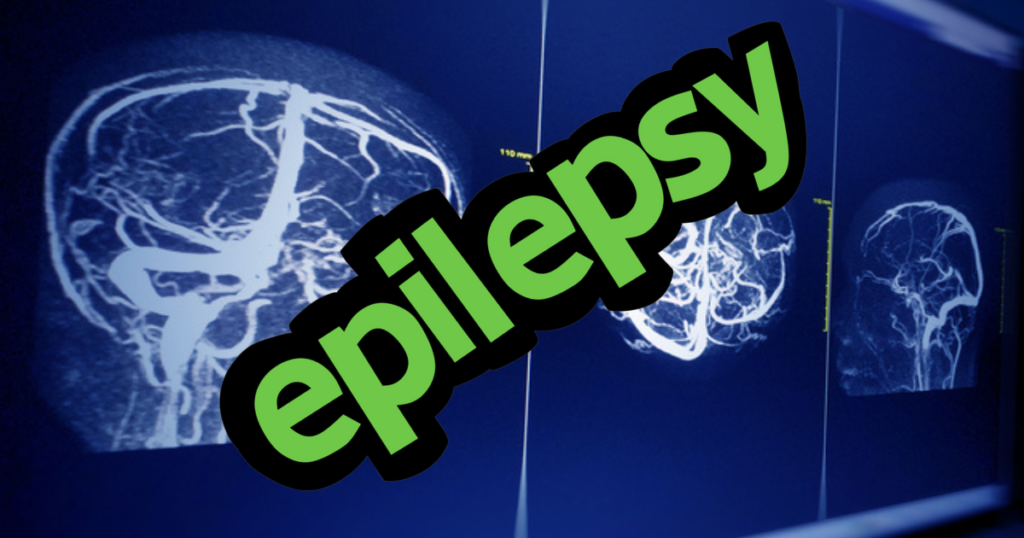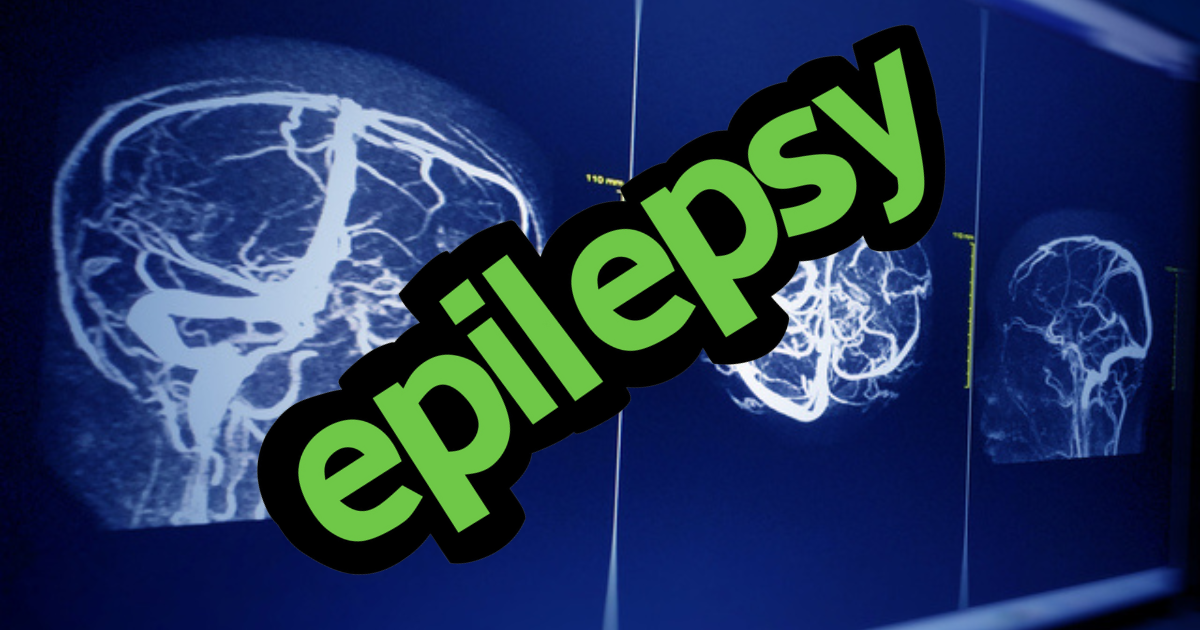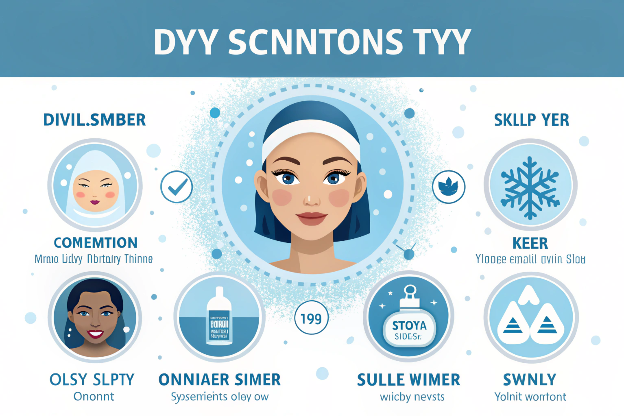Table of Contents
What is Epilepsy?
Epilepsy is a neurological disorder that affects millions of people worldwide and is characterized by recurrent, unprovoked seizures.
eizures are sudden bursts of electrical activity in the brain, which can cause a range of symptoms, including loss of consciousness, jerking movements, and stiffening of the body.
this disease can be a challenging condition to manage, but with proper treatment, most people with epilepsy can live normal lives.

Understanding Epilepsy
Epilepsy is a complex disorder with a wide range of causes and potential triggers. While the exact cause is unknown in many cases, there are several factors that can contribute to its development.
These include structural abnormalities of the brain, genetic predisposition, head trauma, infections, stroke, tumors, metabolic disorders, and idiopathic factors.
Additionally, certain medical conditions, such as neurofibromatosis type 1 (NF1) and tuberous sclerosis, can increase the risk of developing epilepsy.
Types of Epilepsy
There are many different types of diseases, but they can be broadly divided into two categories: generalized epilepsy and partial epilepsy.
Generalized epilepsy affects the entire brain. Seizures in this type of epilepsy typically cause loss of consciousness and jerking movements of the arms and legs.
Partial epilepsy only affects a part of the brain. Seizures in this type of epilepsy may cause a variety of symptoms, depending on the part of the brain that is affected.
How does Epilepsy affect a person?
There are many different causes of epilepsy, but in many cases, the cause is unknown. Some of the known causes of epilepsy include:
Structural abnormalities of the brain

Structural abnormalities of the brain are physical irregularities in the brain’s structure that can affect its function. These abnormalities can be present at birth or develop later in life as a result of injury, infection, or disease.
Genetic factors
Genetic factors play a significant role in determining various aspects of an individual’s traits, including physical characteristics, susceptibility to diseases, and even personality traits.
Genes, the basic units of heredity, are carried on chromosomes and contain the instructions for building and maintaining an organism. The variations in these genes, known as genetic variants, can influence an individual’s predisposition to certain conditions.
In the context of epilepsy, genetic factors are considered a major contributor to the development of the disorder. Several genes have been identified as associated with an increased risk of epilepsy, and individuals with a family history of this brain disease are more likely to develop the condition themselves.
However, it is important to note that having a genetic predisposition to epilepsy does not guarantee that the condition will develop, as environmental factors also play a crucial role.
Head trauma
Head trauma refers to any injury to the head, scalp, or brain. It can range from a minor bump to a severe traumatic brain injury (TBI). Head trauma can be caused by a variety of factors, including falls, motor vehicle accidents, sports injuries, and assaults.
The severity of the head trauma depends on the force of the impact, the object that caused the injury, and the part of the head that was injured.
The symptoms of head trauma can vary depending on the severity of the injury. Mild head trauma, also known as a concussion, may cause symptoms such as headaches, dizziness, nausea, and vomiting.
More severe head trauma can cause symptoms such as loss of consciousness, seizures, and coma. In some cases, head trauma can lead to long-term disabilities, such as cognitive impairments, movement problems, and speech difficulties.
Infection
An infection is the invasion of tissues by pathogens, their multiplication, and the reaction of host tissues to the infectious agent and the toxins they produce.
An infectious disease, also known as a transmissible disease or communicable disease, is an illness resulting from an infection. Infections can be caused by a wide range of pathogens, most prominently bacteria and viruses. Hosts can fight infections using their immune systems.
The symptoms of infection vary depending on the type of pathogen and the location of the infection. Common symptoms include fever, chills, fatigue, muscle aches, headache, and nausea.
In some cases, infections can cause more serious symptoms, such as pneumonia, meningitis, or sepsis.
Stroke
A stroke, also known as a brain attack, occurs when blood flow to a part of the brain is interrupted or severely reduced, depriving brain tissue of oxygen and nutrients.
This can cause brain cells to die within minutes. Strokes are a leading cause of death and disability worldwide, and they can affect people of all ages, including children.
There are two main types of stroke: ischemic stroke and hemorrhagic stroke. Ischemic stroke, the most common type, occurs when a blood clot blocks a blood vessel in the brain.
A hemorrhagic stroke occurs when a weakened blood vessel in the brain ruptures, causing bleeding into the brain.
Tumor
A tumor is an abnormal mass of tissue that develops without control and can be benign (noncancerous) or malignant (cancerous). Tumors can occur in any part of the body, and they can grow slowly or quickly.
Benign tumors do not spread to other parts of the body and are not usually life-threatening. Malignant tumors, on the other hand, can spread to other parts of the body through the bloodstream or lymphatic system, and they can be life-threatening.
Metabolic disorders
Metabolic disorders are a group of conditions that disrupt the body’s metabolism, the process by which the body converts food into energy.
This can lead to a buildup of harmful substances in the body or a shortage of essential nutrients. Metabolic disorders can be caused by genetic factors, environmental factors, or a combination of both.
Idiopathic Epilepsy (unknown cause)
Idiopathic Epilepsy, previously referred to as cryptogenic epilepsy, is a type of brain disease in which the cause of the seizures is unknown. It is the most common type of epilepsy, accounting for about 60% of all cases. Idiopathic epilepsy is typically diagnosed in children and adolescents, but it can also occur in adults.
There is no single test that can diagnose idiopathic epilepsy. Diagnosis is usually made based on the patient’s medical history, seizure symptoms, and results of electroencephalogram (EEG) and other tests.
Treatment for idiopathic epilepsy typically involves medication to control seizures. In some cases, surgery may be an option. With proper treatment, most people with idiopathic epilepsy can live normal lives.

Risk factors for epilepsy
Some factors that may increase the risk of developing epilepsy include:
Family history of epilepsy
A family history of epilepsy is one of the most important risk factors for developing the disorder. People with a first-degree relative (parent, sibling, or child) who has epilepsy are 2-3 times more likely to develop epilepsy themselves. The risk is even higher if two or more first-degree relatives have epilepsy.
The exact genetic factors that contribute to epilepsy are still being studied, but it is believed that multiple genes are involved. Some genes have been identified that increase the risk of developing epilepsy, but these genes do not explain all cases. It is likely that other genetic factors, as well as environmental factors, play a role.
Even though having a family history of epilepsy increases the risk of developing the disorder, it does not mean that a person will definitely develop epilepsy. Many people with a family history of epilepsy never develop the disorder.
Head injury
A head injury, also known as a traumatic brain injury (TBI), is any injury to the head, scalp, or brain. It can range from a minor bump to a severe traumatic brain injury (TBI).
Head trauma can be caused by a variety of factors, including falls, motor vehicle accidents, sports injuries, and assaults. The severity of the head trauma depends on the force of the impact, the object that caused the injury, and the part of the head that was injured.
The symptoms of head trauma can vary depending on the severity of the injury. Mild head trauma, also known as a concussion, may cause symptoms such as headache, dizziness, nausea, and vomiting.
More severe head trauma can cause symptoms such as loss of consciousness, seizures, and coma. In some cases, head trauma can lead to long-term disabilities, such as cognitive impairments, movement problems, and speech difficulties.
Stroke
A stroke, also known as a brain attack, occurs when blood flow to a part of the brain is interrupted or severely reduced, depriving brain tissue of oxygen and nutrients.
This can cause brain cells to die within minutes. Strokes are a leading cause of death and disability worldwide, and they can affect people of all ages, including children.
There are two main types of stroke: ischemic stroke and hemorrhagic stroke. Ischemic stroke, the most common type, occurs when a blood clot blocks a blood vessel in the brain.
Hemorrhagic stroke occurs when a weakened blood vessel in the brain ruptures, causing bleeding into the brain.
Brain infection
Brain infections, also known as encephalitis and meningitis, are serious conditions that occur when the brain or its lining (meninges) becomes inflamed as a result of infection.
These infections can be caused by a variety of pathogens, including viruses, bacteria, fungi, and parasites.
Symptoms of brain infections can vary depending on the type of infection and the location of the inflammation.
Certain medications
Certain medications can increase the risk of seizures, particularly in individuals with pre-existing conditions like epilepsy or those with a family history of seizures. These medications include:
- Antidepressants: Certain antidepressants, such as tricyclic antidepressants and selective serotonin reuptake inhibitors (SSRIs), can lower the seizure threshold, making seizures more likely in individuals with a predisposition.
- Anticonvulsants: Paradoxically, some anticonvulsants used to treat epilepsy can also trigger seizures, particularly when initiating or withdrawing from the medication.
- Antibiotics: Certain antibiotics, such as penicillin and cephalosporins, can lower the seizure threshold, especially in high doses or in individuals with renal impairment.
- Antipsychotics: Antipsychotics used to treat psychiatric disorders can increase the risk of seizures, particularly in individuals with a history of seizures or family history.
- Pain medications: Certain pain medications, such as tramadol and opioids, can lower the seizure threshold, especially in high doses or in individuals with underlying neurological conditions.
- Stimulants: Stimulants like cocaine, amphetamines, and methamphetamine can lower the seizure threshold and increase the risk of seizures.
- Over-the-counter medications: Some over-the-counter medications, such as cold and allergy medications containing pseudoephedrine, can lower the seizure threshold in individuals with pre-existing conditions.
If you are taking any medication and have concerns about the potential for seizures, consult your doctor. They can assess your risk factors and recommend appropriate precautions or alternative medications.

Symptoms of epilepsy
The symptoms of epilepsy vary depending on the type of seizure. Some common symptoms of epilepsy include:
Seizures
Seizures are a sudden burst of electrical activity in the brain that can cause a variety of symptoms, including loss of consciousness, jerking movements, and stiffening of the body.
They are the hallmark symptom of epilepsy but can also be caused by other conditions, such as head trauma, stroke, or infection.
person having a seizure
The type of seizure a person experiences depends on the part of the brain that is affected. Generalized seizures affect the entire brain and typically cause a loss of consciousness and jerking movements of the arms and legs.
Partial seizures only affect part of the brain and can cause a wider range of symptoms depending on the area of the brain that is involved. Some possible partial seizure symptoms include:
Loss of consciousness
Loss of consciousness (LOC), also known as syncope, is a temporary loss of awareness of one’s surroundings. It is a common medical condition that can be caused by a variety of factors, including low blood sugar, dehydration, heart problems, and neurological disorders.
In some cases, LOC can be a sign of a serious medical condition, so it is important to seek medical attention if you experience it.
Jerking movements
Jerking movements, also known as myoclonic jerks, are sudden, brief contractions of a muscle or group of muscles. They can occur in any part of the body, but they are most common in the arms and legs.
Jerking movements can be caused by a variety of factors, including epilepsy, brain injury, stroke, and certain medications. They can also be a normal part of development in infants and young children.
Stiffening of the body
Muscle stiffening, also known as rigidity or spasticity, is a condition that causes an increase in muscle tone. This can make it difficult or impossible to move the affected muscles. In some cases, muscle stiffening can also cause pain.
Falling
Falling can be a serious problem for people of all ages. It is the second leading cause of unintentional injury death globally, with an estimated 684,000 deaths in 2020.
Falls are also a major cause of nonfatal injuries, resulting in an estimated 37.3 million falls that were severe enough to require medical attention in 2022.
Confusion
Confusion is a temporary state of mental disorientation that can cause difficulty thinking, understanding, and remembering things. It is a common symptom of many medical conditions,
Memory loss
Memory loss is a common symptom that can be caused by a variety of factors, including aging, stress, anxiety, depression, lack of sleep, and certain medical conditions. It can also be a side effect of some medications.
In some cases, memory loss can be temporary and reversible. However, in other cases, it can be a sign of a more serious medical condition, such as Alzheimer’s disease or dementia.
Sensory disturbances
Sensory disturbances are disruptions in the way the brain processes sensory information from the body’s five senses: sight, hearing, touch, taste, and smell. These disturbances can manifest in a variety of ways
Diagnosis of epilepsy
There is no single test that can diagnose epilepsy. Diagnosis is typically based on a medical history, physical examination, neurological examination, and electroencephalogram (EEG). An EEG is a test that records the electrical activity of the brain.
Brain imaging, such as MRI or CT scan, may also be used to diagnose epilepsy and rule out other possible causes of seizures.
Treatment of Epilepsy
The treatment of epilepsy typically involves anticonvulsant medication. Anticonvulsant medication works by controlling the electrical activity of the brain.
In some cases, surgery may be an option for people with epilepsy who do not respond to medication.
Can Epilepsy live a normal life?
Most people with epilepsy can live normal lives with proper treatment. However, it is important to manage seizures and avoid triggers. Triggers are things that can increase the risk of having a seizure. Common triggers include stress, fatigue, lack of sleep, and alcohol.
People with epilepsy should also maintain a healthy lifestyle, including eating a healthy diet, getting regular exercise, and getting enough sleep. Coping with the emotional impact of epilepsy can be challenging.
People with epilepsy may experience depression, anxiety, and social isolation. It is important to seek support from others, such as family, friends, and support groups.
Resources for People with Epilepsy
There are many resources available to help people with epilepsy and their families. Some of these resources include:
Epilepsy Foundation
The Epilepsy Foundation is a non-profit organization dedicated to improving the lives of people with epilepsy and seizure disorders. Founded in 1968, the foundation has a network of nearly 59 affiliates nationwide and provides a variety of resources and services to people with epilepsy, their families, and healthcare professionals. These services include:
- Support and advocacy: The foundation provides support and advocacy to people with epilepsy through a variety of means, including a national helpline, online resources, and local chapters.
- Education and awareness: The foundation educates the public about epilepsy through a variety of means, including public awareness campaigns, educational materials, and community events.
- Research: The foundation funds research into the causes, treatments, and cures for epilepsy.
- Public policy: The foundation advocates for public policies that benefit people with epilepsy.
The Epilepsy Foundation is a valuable resource for people with epilepsy and their families. The foundation’s work has helped to improve the lives of millions of people with epilepsy, and it continues to be a leading force in the fight against epilepsy.
National Institute of Neurological Disorders and Stroke
The National Institute of Neurological Disorders and Stroke (NINDS) is part of the National Institutes of Health (NIH), a federal agency dedicated to advancing biomedical research. Founded in 1950, NINDS supports and conducts research on brain and nervous system disorders, with a mission to reduce the burden of neurological disease.
The institute’s research portfolio spans a wide range of neurological disorders, including Alzheimer’s disease, Parkinson’s disease, epilepsy, stroke, and traumatic brain injury. Through its funding and research efforts, NINDS aims to improve diagnosis, treatment, and prevention of neurological disorders, ultimately enhancing the quality of life for millions of individuals affected by these conditions.
American Epilepsy Society (AES)
The National American Epilepsy Society (AES) is a non-profit organization dedicated to supporting individuals affected by epilepsy through research, education, and advocacy.
Founded in 1936, the AES is one of the oldest neurological professional organizations in the United States, currently consisting of approximately 1,850 members including clinicians, scientists investigating basic and clinical aspects of epilepsy, and other professionals interested in seizure disorders.
The AES’s mission is to improve the lives of people with epilepsy by advancing research, education, and advocacy. The AES focuses on the following areas:
- Research: The AES supports and conducts research on the causes, treatments, and cures for epilepsy. The AES also publishes the journal Epilepsia, which is the leading international authority on epilepsy research.
- Education: The AES provides a variety of educational resources for people with epilepsy, their families, and healthcare professionals. The AES also hosts an annual meeting that is the largest gathering of epilepsy professionals in the world.
- Advocacy: The AES advocates for public policies that benefit people with epilepsy. The AES also works to raise awareness of epilepsy and to dispel myths and misconceptions about the disorder.
The AES is a leading force in the fight against epilepsy. The AES’s work has helped to improve the lives of millions of people with epilepsy, and it continues to be a valuable resource for people affected by the disorder.
Conclusion
Epilepsy is a complex disorder with diverse causes and manifestations. Despite significant advances in understanding and treating epilepsy, there is still much to be learned about this intricate neurological condition.
Ongoing research efforts aim to uncover the underlying mechanisms of epilepsy, develop novel therapeutic approaches, and improve the quality of life for individuals affected by this disease.
With continued dedication and collaboration, we can move closer to a future where epilepsy is no longer a barrier to living a full and enriching life.
Frequently Asked Questions
Q1. What is epilepsy, and how does it affect the brain?
Epilepsy is a neurological disorder characterized by recurrent seizures, which are caused by abnormal electrical activity in the brain. These seizures can vary widely in their presentation and severity, ranging from brief lapses of awareness to convulsions and loss of consciousness.
Epilepsy can affect people of all ages and backgrounds and can have a significant impact on daily life and overall well-being.
Q2. What are the causes of epilepsy?
Epilepsy can have various causes, including genetic factors, brain injuries (such as head trauma or stroke), brain tumors, infections (such as meningitis or encephalitis), developmental disorders (such as cerebral palsy or autism), and prenatal factors (such as maternal drug use or oxygen deprivation during birth). In many cases, the underlying cause of epilepsy may not be identified.
Q3. How is epilepsy diagnosed?
Diagnosis of epilepsy typically involves a thorough medical history, physical examination, neurological evaluation, and diagnostic tests, such as electroencephalogram (EEG), brain imaging (such as MRI or CT scan), and blood tests.
These tests help to identify the presence of abnormal electrical activity in the brain, determine the type and frequency of seizures, and rule out other possible causes of symptoms.
Q4. What are the treatment options for epilepsy?
Treatment for epilepsy aims to control seizures, minimize their frequency and severity, and improve overall quality of life. The primary treatment approach is medication, with antiepileptic drugs (AEDs) being the most commonly prescribed.
For some individuals with epilepsy, surgery may be recommended to remove or disconnect the area of the brain responsible for seizures. Other treatment options include dietary therapies (such as the ketogenic diet), vagus nerve stimulation (VNS), and responsive neurostimulation (RNS).
Q5. How does epilepsy impact daily life, and what support is available for individuals with epilepsy?
Epilepsy can have a significant impact on daily life, affecting various aspects such as employment, education, driving, relationships, and emotional well-being.
Living with epilepsy may require individuals to make adjustments to their lifestyle, such as avoiding triggers, managing stress, and adhering to medication regimens.
Support and resources for individuals with epilepsy are available from healthcare professionals, epilepsy organizations, support groups, and online communities, providing information, education, advocacy, and peer support.





